| Listing 1 - 10 of 11 | << page >> |
Sort by
|
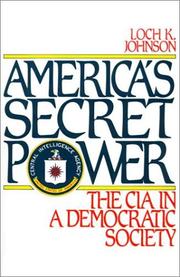
ISBN: 1429401117 9781429401111 1280525762 9781280525766 0195069447 0195054903 9780195054903 9780195069440 9780195361537 0195361539 0197732836 Year: 1989 Publisher: New York Oxford University Press
Abstract | Keywords | Export | Availability | Bookmark
 Loading...
Loading...Choose an application
- Reference Manager
- EndNote
- RefWorks (Direct export to RefWorks)
United States. Central Intelligence Agency --- Intelligence service --- United States --- United States. --- Agjencia Qendrore e Inteligjencës --- Central Intelligence Agency (U.S.) --- CIA (Central Intelligence Agency) --- CIP (United States. Centrālās izlūkošanas pārvalde) --- Mei-kuo chung yang chʻing pao chü --- National Security Council (U.S.). --- Si Aing Ei --- T︠S︡entralʹnoe razvedyvatelʹnoe upravlenie SShA --- T︠S︡RU SShA --- T︠S︡RU (T︠S︡entralʹnoe razvedyvatelʹnoe upravlenie SShA) --- ЦРУ США --- ЦРУ (Центральное разведывательное управление США) --- Центральное разведывательное управление США --- ארצות הברית. --- 美國. --- National Security Council (U.S.) --- VIE INTERNATIONALE --- POLITIQUE ETRANGERE --- POLITIQUE DE SECURITE --- RENSEIGNEMENT-ESPIONNAGE --- ETATS-UNIS --- Political science.
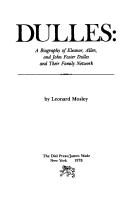
ISBN: 080371744X Year: 1978 Publisher: New York Dial press
Abstract | Keywords | Export | Availability | Bookmark
 Loading...
Loading...Choose an application
- Reference Manager
- EndNote
- RefWorks (Direct export to RefWorks)
Statesmen --- Economists --- Hommes d'Etat --- Economistes --- Biography. --- Biographies --- Biographie --- Dulles family. --- Dulles, John Foster, --- Dulles, Eleanor Lansing, --- Dulles, Allen Welsh, --- United States. --- United States --- Etats-Unis --- Officials and employees --- Foreign relations --- Relations extérieures --- #GGSB: Geschiedenis (Europa) --- #GGSB: Geschiedenis (Biografieen) --- Dulles, Allen, --- Relations extérieures --- Blondheim, David S., --- Blondheim, Eleanor Lansing Dulles --- Даллес, Аллен, --- Dalles, Allen, --- Agjencia Qendrore e Inteligjencës --- Central Intelligence Agency (U.S.) --- CIA (Central Intelligence Agency (U.S.)) --- CIP (United States. Centrālās izlūkošanas pārvalde) --- Mei-kuo chung yang chʻing pao chü --- National Security Council (U.S.). --- Si Aing Ei --- T︠S︡entralʹnoe razvedyvatelʹnoe upravlenie SShA --- T︠S︡RU SShA --- T︠S︡RU (T︠S︡entralʹnoe razvedyvatelʹnoe upravlenie SShA) --- ЦРУ США --- ЦРУ (Центральное разведывательное управление США) --- Центральное разведывательное управление США --- ארצות הברית. --- 美國. --- National Security Council (U.S.) --- Biography --- United States. Central Intelligence Agency --- 20th century --- CIA (Central Intelligence Agency) --- Geschiedenis (Biografieen) --- Geschiedenis (Europa) --- ダレス, エリノア・ランシング
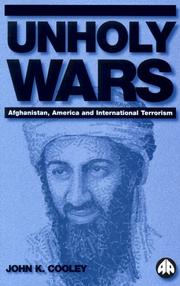
ISBN: 0745313280 Year: 1999 Publisher: London Pluto
Abstract | Keywords | Export | Availability | Bookmark
 Loading...
Loading...Choose an application
- Reference Manager
- EndNote
- RefWorks (Direct export to RefWorks)
Acts of terrorism --- Terrorism --- Terrorisme --- Terrorist acts --- Espionage, American --- Terrorism. --- Attacks, Terrorist --- Global terrorism --- International terrorism --- Political terrorism --- Terror attacks --- Terrorist attacks --- World terrorism --- Direct action --- Insurgency --- Political crimes and offenses --- Subversive activities --- Political violence --- Terror --- American espionage --- United States. --- Agjencia Qendrore e Inteligjencës --- Central Intelligence Agency (U.S.) --- CIA (Central Intelligence Agency (U.S.)) --- CIP (United States. Centrālās izlūkošanas pārvalde) --- Mei-kuo chung yang chʻing pao chü --- National Security Council (U.S.). --- Si Aing Ei --- T︠S︡entralʹnoe razvedyvatelʹnoe upravlenie SShA --- T︠S︡RU SShA --- T︠S︡RU (T︠S︡entralʹnoe razvedyvatelʹnoe upravlenie SShA) --- ЦРУ США --- ЦРУ (Центральное разведывательное управление США) --- Центральное разведывательное управление США --- ארצות הברית. --- 美國. --- National Security Council (U.S.) --- Afghanistan --- United States --- Foreign relations --- Espionage [American ] --- Islamic countries --- United States. Central Intelligence Agency --- United States. - Central Intelligence Agency. --- Espionage, American - Islamic countries. --- Afghanistan - Foreign relations - United States. --- CIA (Central Intelligence Agency)
Book
ISBN: 9780826221377 0826221378 9780826273932 0826273939 Year: 2017 Publisher: Columbia
Abstract | Keywords | Export | Availability | Bookmark
 Loading...
Loading...Choose an application
- Reference Manager
- EndNote
- RefWorks (Direct export to RefWorks)
"This highly accessible book provides new material and a fresh perspective on American National Intelligence practice, focusing on the first fifty years of the twentieth century, when the United States took on the responsibilities of a global superpower during the first years of the Cold War. Late to the art of intelligence, the United States during World War II created a new model of combining intelligence collection and analytic functions into a single organization--the OSS. At the end of the war, President Harry Truman and a small group of advisors developed a new, centralized agency directly subordinate to and responsible to the President, despite entrenched institutional resistance. Instrumental to the creation of the CIA was a group known colloquially as the "Missouri Gang," which included not only President Truman but equally determined fellow Missourians Clark Clifford, Sidney Souers, and Roscoe Hillenkoetter." -- Book Jacket.
Truman, Harry S. --- Cold War --- Verenigde Staten. Central Intelligence Agency --- Geschiedenis --- Truman, Harry S., --- United States. --- USA --- History. --- Cold War (1945-1989) --- Dulumen, --- Trouman, Charry S., --- Truman, H. --- Truman, Harry, --- Trumėn, G., --- טרומאן, הארי ס., --- Central Intelligence Agency --- CIA --- Centralʹnoe razvedyvatelʹnoe upravlenie --- CRU --- Si Aing Ei --- Geheimdienst --- 1947 --- -Agjencia Qendrore e Inteligjencës --- Central Intelligence Agency (U.S.) --- CIA (Central Intelligence Agency) --- CIP (United States. Centrālās izlūkošanas pārvalde) --- Mei-kuo chung yang chʻing pao ch --- National Security Council (U.S.). --- T͡Sentralʹnoe razvedyvatelʹnoe upravlenie SShA --- T͡SRU SShA --- T͡SRU (T͡Sentralʹnoe razvedyvatelʹnoe upravlenie SShA) --- National Security Council (U.S.) --- Agjencia Qendrore e Inteligjencës --- Mei-kuo chung yang chʻing pao chü --- T︠S︡entralʹnoe razvedyvatelʹnoe upravlenie SShA --- T︠S︡RU SShA --- T︠S︡RU (T︠S︡entralʹnoe razvedyvatelʹnoe upravlenie SShA) --- ЦРУ США --- ЦРУ (Центральное разведывательное управление США) --- Центральное разведывательное управление США --- ארצות הברית. --- 美國. --- Truman, Harry --- Trumėn, G. --- Dulumen --- Trouman, Charry S.
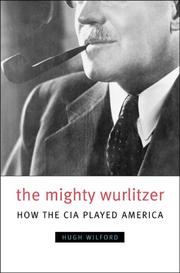
ISBN: 0674045173 9780674045170 9780674026810 0674026810 9780674032569 067403256X 067403256X 9780674032569 Year: 2009 Publisher: Cambridge, MA
Abstract | Keywords | Export | Availability | Bookmark
 Loading...
Loading...Choose an application
- Reference Manager
- EndNote
- RefWorks (Direct export to RefWorks)
Wilford provides the first comprehensive account of the clandestine relationship between the CIA and its front organizations. Using an unprecedented wealth of sources, he traces the rise and fall of America's Cold War front network from its origins in the 1940's to its Third World expansion during the 1950's and ultimate collapse in the 1960's.
Intelligence service --- Cold War. --- Political culture --- Public-private sector cooperation --- Private-public partnerships --- Private-public sector cooperation --- Public-private partnerships --- Public-private sector collaboration --- Cooperation --- World politics --- History --- United States. --- Agjencia Qendrore e Inteligjencës --- Central Intelligence Agency (U.S.) --- CIA (Central Intelligence Agency) --- CIP (United States. Centrālās izlūkošanas pārvalde) --- Mei-kuo chung yang chʻing pao chü --- National Security Council (U.S.). --- Si Aing Ei --- T︠S︡entralʹnoe razvedyvatelʹnoe upravlenie SShA --- T︠S︡RU SShA --- T︠S︡RU (T︠S︡entralʹnoe razvedyvatelʹnoe upravlenie SShA) --- ЦРУ США --- ЦРУ (Центральное разведывательное управление США) --- Центральное разведывательное управление США --- ארצות הברית. --- 美國. --- National Security Council (U.S.) --- United States --- Politics and government --- United States. Central Intelligence Agency --- Cold War --- 20th century --- 1945-1989
Book
ISBN: 0300210663 9780300210668 9780300205084 0300205082 Year: 2015 Publisher: New Haven
Abstract | Keywords | Export | Availability | Bookmark
 Loading...
Loading...Choose an application
- Reference Manager
- EndNote
- RefWorks (Direct export to RefWorks)
The previously untold true story of the CIA's clandestine use of American students as undercover operatives during the Cold War In 1967, CIA director Richard Helms had, as he would later recall, "one of my darkest days" when President Lyndon Johnson told him that the muckraking magazine Ramparts was about to expose one of the Agency's best-kept secrets: a covert project to enroll American students in the crusade against communism. Ramparts, however, had only a small part of the story of the CIA's two-decades-long effort to suborn the National Student Association. Patriotic Betrayal tells the rest of the tale, which reads like a John le Carré novel, filled with self-serving rationalizations, layers of duplicity, and bureaucratic double-talk. In this eye-opening book, Karen M. Paget, herself a former member of the NSA, mined hundreds of archival sources and declassified documents, and interviewed more than 150 people, to uncover precisely how the CIA turned the NSA into an intelligence asset during the Cold War, with students used-sometimes wittingly but usually unwittingly-as undercover agents inside America and abroad. A rich and suspenseful account of an under-examined episode in the Cold War, Patriotic Betrayal describes the relationship from its inception in 1947, when both the NSA and CIA were established, to 1967, when public exposure forced the CIA to discontinue the arrangement while successfully engineering a cover-up of the extent of its penetration into the NSA. For the first time, Paget tells the full story revealing that what began as a straightforward project to thwart perceived Soviet influence in America and abroad grew and diversified, and that intelligence-gathering and espionage-despite subsequent CIA denials-were integral to its nature. How did a domestic liberal student organization become, effectively, a covert arm of a secret government organization charged with advancing U.S. foreign policy aims? The answer throws a sharp light on the persistent argument, heard even today, about whether America's national-security interests can be secured by skullduggery and deception. Patriotic Betrayal is an indispensable history of the dark side of Cold War good intentions and fills a significant gap in an important era of postwar twentieth-century history.
Anti-communist movements --- History --- United States. --- United States National Student Association. --- United States Student Association --- National Student Association --- National Student Organization --- U.S. National Student Association --- USNSA --- National Security Council (U.S.) --- Agjencia Qendrore e Inteligjencës --- Central Intelligence Agency (U.S.) --- CIA (Central Intelligence Agency) --- CIP (United States. Centrālās izlūkošanas pārvalde) --- Mei-kuo chung yang chʻing pao chü --- National Security Council (U.S.). --- Si Aing Ei --- T︠S︡entralʹnoe razvedyvatelʹnoe upravlenie SShA --- T︠S︡RU SShA --- T︠S︡RU (T︠S︡entralʹnoe razvedyvatelʹnoe upravlenie SShA) --- ЦРУ США --- ЦРУ (Центральное разведывательное управление США) --- Центральное разведывательное управление США --- ארצות הברית. --- 美國. --- United States. Central Intelligence Agency --- 20th century --- United States National Student Association --- United States
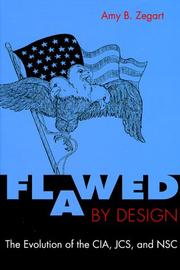
ISBN: 0804735042 Year: 1999 Publisher: Stanford, Calif. Stanford University Press
Abstract | Keywords | Export | Availability | Bookmark
 Loading...
Loading...Choose an application
- Reference Manager
- EndNote
- RefWorks (Direct export to RefWorks)
Polemology --- inlichtingendiensten --- United States --- Intelligence service --- -#KVHA:Verenigde Staten; Staatsveiligheid --- Counter intelligence --- Counterespionage --- Counterintelligence --- Intelligence community --- Secret police (Intelligence service) --- Public administration --- Research --- Disinformation --- Secret service --- National Security Council (U.S.) --- -United States. Central Intelligence Agency --- -United States. Joint Chiefs of Staff --- -United States. --- United States. --- Sovet nat︠s︡ionalʹnoĭ bezopasnosti SShA --- Agentstvo nat︠s︡ionalʹnoĭ bezopasnosti (U.S.) --- NSC --- ANB --- History --- -History --- #KVHA:Verenigde Staten; Staatsveiligheid --- Joint United States Chiefs of Staff --- JCS --- Agjencia Qendrore e Inteligjencës --- Central Intelligence Agency (U.S.) --- CIA (Central Intelligence Agency (U.S.)) --- CIP (United States. Centrālās izlūkošanas pārvalde) --- Mei-kuo chung yang chʻing pao chü --- National Security Council (U.S.). --- Si Aing Ei --- T︠S︡entralʹnoe razvedyvatelʹnoe upravlenie SShA --- T︠S︡RU SShA --- T︠S︡RU (T︠S︡entralʹnoe razvedyvatelʹnoe upravlenie SShA) --- ЦРУ США --- ЦРУ (Центральное разведывательное управление США) --- Центральное разведывательное управление США --- ארצות הברית. --- 美國. --- History. --- J.C.S. --- United States. Central Intelligence Agency --- United States. Joint Chieffs of Staff --- United States. - Central Intelligence Agency - History. --- United States. - Joint Chiefs of Staff - History. --- CIA (Central Intelligence Agency) --- United States of America
Book
ISBN: 0801457610 0801458854 0801478065 9780801458859 9780801447853 0801447852 9780801457616 9780801478062 Year: 2010 Volume: *21 Publisher: Ithaca, N.Y. Cornell University Press
Abstract | Keywords | Export | Availability | Bookmark
 Loading...
Loading...Choose an application
- Reference Manager
- EndNote
- RefWorks (Direct export to RefWorks)
The U.S. government spends enormous resources each year on the gathering and analysis of intelligence, yet the history of American foreign policy is littered with missteps and misunderstandings that have resulted from intelligence failures. In Why Intelligence Fails, Robert Jervis examines the politics and psychology of two of the more spectacular intelligence failures in recent memory: the mistaken belief that the regime of the Shah in Iran was secure and stable in 1978, and the claim that Iraq had active WMD programs in 2002. The Iran case is based on a recently declassified report Jervis was commissioned to undertake by CIA thirty years ago and includes memoranda written by CIA officials in response to Jervis's findings. The Iraq case, also grounded in a review of the intelligence community's performance, is based on close readings of both classified and declassified documents, though Jervis's conclusions are entirely supported by evidence that has been declassified. In both cases, Jervis finds not only that intelligence was badly flawed but also that later explanations-analysts were bowing to political pressure and telling the White House what it wanted to hear or were willfully blind-were also incorrect. Proponents of these explanations claimed that initial errors were compounded by groupthink, lack of coordination within the government, and failure to share information. Policy prescriptions, including the recent establishment of a Director of National Intelligence, were supposed to remedy the situation. In Jervis's estimation, neither the explanations nor the prescriptions are adequate. The inferences that intelligence drew were actually quite plausible given the information available. Errors arose, he concludes, from insufficient attention to the ways in which information should be gathered and interpreted, a lack of self-awareness about the factors that led to the judgments, and an organizational culture that failed to probe for weaknesses and explore alternatives. Evaluating the inherent tensions between the methods and aims of intelligence personnel and policymakers from a unique insider's perspective, Jervis forcefully criticizes recent proposals for improving the performance of the intelligence community and discusses ways in which future analysis can be improved.
Intelligence service --- Iraq War, 2003-2011 --- Weapons of mass destruction --- Evaluation --- Military intelligence --- Evaluation. --- United States. --- Iran --- History --- Anglo-American Invasion of Iraq, 2003-2011 --- Dawn, Operation New, 2010-2011 --- Gulf War II, 2003-2011 --- Iraqi Freedom, Operation, 2003-2010 --- New Dawn, Operation, 2010-2011 --- Operation Iraqi Freedom, 2003-2010 --- Operation New Dawn, 2010-2011 --- Operation Telic, 2003-2011 --- Persian Gulf War, 2003-2011 --- Telic, Operation, 2003-2011 --- Counter intelligence --- Counterespionage --- Counterintelligence --- Intelligence community --- Secret police (Intelligence service) --- Agjencia Qendrore e Inteligjencës --- Central Intelligence Agency (U.S.) --- CIA (Central Intelligence Agency (U.S.)) --- CIP (United States. Centrālās izlūkošanas pārvalde) --- Mei-kuo chung yang chʻing pao chü --- National Security Council (U.S.). --- Si Aing Ei --- T︠S︡entralʹnoe razvedyvatelʹnoe upravlenie SShA --- T︠S︡RU SShA --- T︠S︡RU (T︠S︡entralʹnoe razvedyvatelʹnoe upravlenie SShA) --- ЦРУ США --- ЦРУ (Центральное разведывательное управление США) --- Центральное разведывательное управление США --- ארצות הברית. --- 美國. --- War on Terrorism, 2001-2009 --- Public administration --- Research --- Disinformation --- Secret service --- National Security Council (U.S.) --- CIA (Central Intelligence Agency) --- Polemology --- United States --- Case studies --- United States. Central Intelligence Agency --- Revolution, 1979 --- Iraq --- Intelligence service - United States - Evaluation - Case studies --- Iraq War, 2003-2011 - Military intelligence - United States - Evaluation --- Weapons of mass destruction - Iraq --- Iran - History - Revolution, 1979 --- United States of America
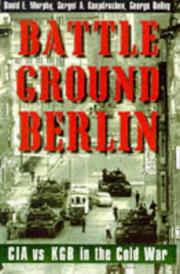
ISBN: 0300072333 0300078714 Year: 1997 Publisher: New Haven [Conn.] : Yale University Press,
Abstract | Keywords | Export | Availability | Bookmark
 Loading...
Loading...Choose an application
- Reference Manager
- EndNote
- RefWorks (Direct export to RefWorks)
History of North America --- History of Eastern Europe --- anno 1950-1959 --- Russian Federation --- United States --- Berlin --- Espionage, American --- Espionage, Soviet --- Cold War. --- Espionnage américain --- Espionnage soviétique --- Guerre froide --- Soviet Union. --- United States. --- Soviet Union --- Berlin (Germany) --- Etats-Unis --- URSS --- Berlin (Allemagne) --- Foreign relations --- Strategic aspects. --- Politics and government --- Relations extérieures --- Aspect stratégique --- Politique et gouvernement --- #BUAR:bibl.de Bock --- Russia --- Espionnage américain --- Espionnage soviétique --- Relations extérieures --- Aspect stratégique --- Cold War --- Soviet espionage --- American espionage --- World politics --- Agjencia Qendrore e Inteligjencës --- Central Intelligence Agency (U.S.) --- CIA (Central Intelligence Agency (U.S.)) --- CIP (United States. Centrālās izlūkošanas pārvalde) --- Mei-kuo chung yang chʻing pao chü --- National Security Council (U.S.). --- Si Aing Ei --- T︠S︡entralʹnoe razvedyvatelʹnoe upravlenie SShA --- T︠S︡RU SShA --- T︠S︡RU (T︠S︡entralʹnoe razvedyvatelʹnoe upravlenie SShA) --- ЦРУ США --- ЦРУ (Центральное разведывательное управление США) --- Центральное разведывательное управление США --- ארצות הברית. --- 美國. --- National Security Council (U.S.) --- KGB --- USSR KGB --- K.G.B. --- Russia (1923- U.S.S.R.). --- KA-GKE-BE --- KGB SSSR --- ק.ג.ב --- Gosudarstvennyĭ komitet RSFSR po obshchestvennoĭ bezopasnosti i vzaimodeĭstvii︠u︡ s Ministerstvom oborony SSSR i KGB SSSR --- Russia (Federation). --- T︠S︡entralʹnai︠a︡ sluzhba razvedki SSSR --- Stadt Berlin (Germany) --- Berlin (Germany : State) --- Berlim (Germany) --- Baralīna (Germany) --- Berolinum (Germany) --- Berlinum (Germany) --- Verolino (Germany) --- Land Berlin (Germany) --- Berlin State (Germany) --- Berlino (Germany) --- Berlijn (Germany) --- Berlin (Germany : West) --- Berlin (Germany : East) --- Strategic aspects --- 1945-1990 --- CIA (Central Intelligence Agency) --- United States of America
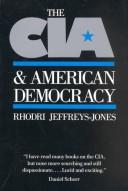
ISBN: 0300050178 0300208502 0300041497 9780300208504 0300099487 9780300099485 0300077378 9780300077377 Year: 1989 Publisher: New Haven, Conn. Yale University Press
Abstract | Keywords | Export | Availability | Bookmark
 Loading...
Loading...Choose an application
- Reference Manager
- EndNote
- RefWorks (Direct export to RefWorks)
This third edition of Rhodri Jeffreys-Jones's engrossing history of the Central Intelligence Agency includes a new prologue that discusses the history of the CIA since the end of the Cold War, focusing in particular on the intelligence dimensions of the terrorist attacks on 9/11.Praise for the earlier editions:"I have read many books on the CIA, but none more searching and still dispassionate. Nor would I have believed that a book of such towering scholarship could still be so lucid and exciting to read."-Daniel Schorr"This is one of the best short histories of the CIA in print, up-to-date and based on a wide range of sources."-Walter Laqueur"Judicious and reasonable. . . . A sophisticated study that should challenge us to take a more serious view about how our democracy formulates its foreign policy."-David P. Calleo, New York Times Book ReviewA brief, yet subtle and penetrating, account of the Central Intelligence Agency."-Leonard Bushkoff, Christian Science Monitor"Subtle and crisply written. . . . A book remarkable for its clarity and lack of bias."-William W. Powers, Jr., International Herald Tribune, Paris
United States. --- History. --- Agjencia Qendrore e Inteligjencës --- Central Intelligence Agency (U.S.) --- CIA (Central Intelligence Agency (U.S.)) --- CIP (United States. Centrālās izlūkošanas pārvalde) --- Mei-kuo chung yang chʻing pao chü --- National Security Council (U.S.). --- Si Aing Ei --- T︠S︡entralʹnoe razvedyvatelʹnoe upravlenie SShA --- T︠S︡RU SShA --- T︠S︡RU (T︠S︡entralʹnoe razvedyvatelʹnoe upravlenie SShA) --- ЦРУ США --- ЦРУ (Центральное разведывательное управление США) --- Центральное разведывательное управление США --- ארצות הברית. --- 美國. --- 351.746 <73> --- Politieke politie. Staatspolitie. Grenspolitie. Vreemdelingenpolitie. Geheimepolitie. Prive politie. Detectives. Lijfwachten. Zedenpolitie. Anti-drugbrigade. prive militie--Verenigde Staten van Amerika. VSA. USA --- United States. Central Intelligence Agency --- 351.746 <73> Politieke politie. Staatspolitie. Grenspolitie. Vreemdelingenpolitie. Geheimepolitie. Prive politie. Detectives. Lijfwachten. Zedenpolitie. Anti-drugbrigade. prive militie--Verenigde Staten van Amerika. VSA. USA --- National Security Council (U.S.) --- International relations. Foreign policy --- United States --- Secret service --- Service secret --- CIA (Central Intelligence Agency) --- POLITICAL SCIENCE / Intelligence & Espionage. --- United States. -- Central Intelligence Agency -- History. --- Democracy. --- Self-government --- Political science --- Equality --- Representative government and representation --- Republics --- United States of America
| Listing 1 - 10 of 11 | << page >> |
Sort by
|

 Search
Search Feedback
Feedback About UniCat
About UniCat  Help
Help News
News